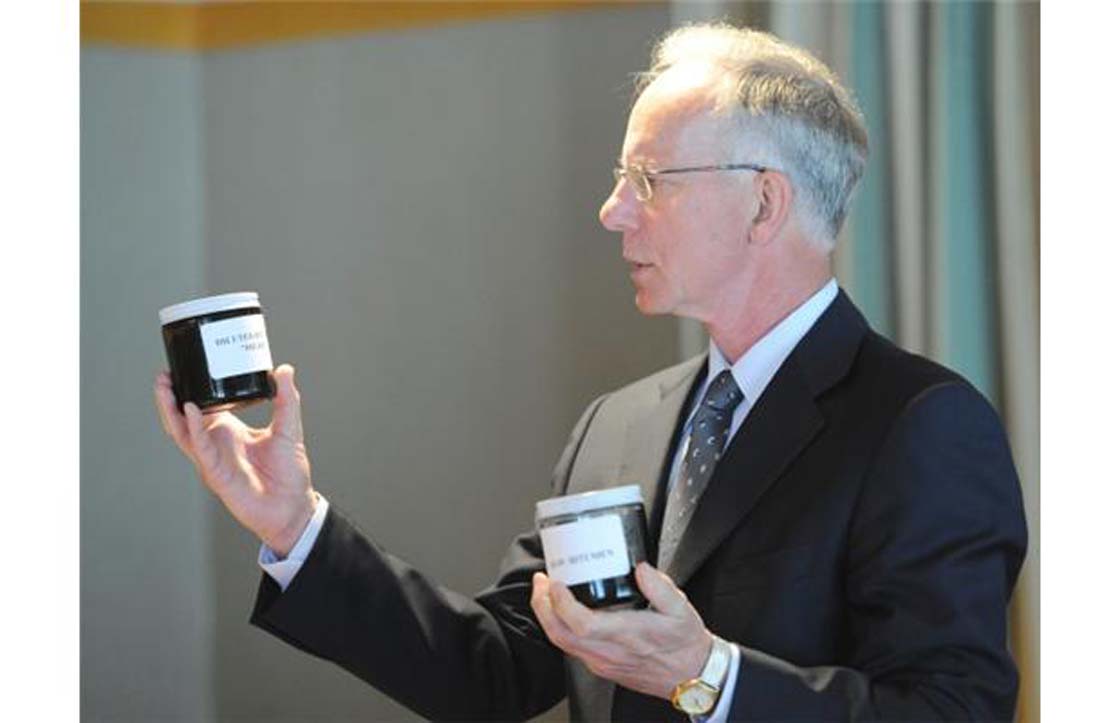While B.C. newspaper publisher David Black pursues his audacious dream of a massive oil refinery on the province’s North Coast, a pre-election political scrap has flared up around the plan.

Premier Christy Clark’s Liberal government last week released a hastily commissioned report on Black’s proposal to build a $25-billion coastal refinery at Kitimat.
Although a new North American oil refinery hasn’t been built in decades — existing refineries have simply expanded capacity — the government’s report concluded Black’s plan has merit.
That’s contrary to the conclusion of some industry experts who initially expressed skepticism about Black’s idea.
“British Columbia was built on bold visions,” Energy Minister Rich Coleman told me.
“There was a lot of skepticism in the 1950s about building our hydroelectric dams, too, yet W.A.C. Bennett’s vision proved the skeptics wrong.”
But the government’s critics still smell a rat.
The massive refinery — which Black says would create 3,000 permanent and 7,000 construction-phase jobs — would require a steady flow of heavy toxic bitumen from Alberta’s oilsands, which would be refined into lighter gasoline and diesel for shipment by tanker to Asia.
The earlier proposed $6-billion Enbridge pipeline — which would pump raw bitumen to the B.C. coast for export to Asia — is already the target of withering debate and criticism.

Get breaking National news
Now environmentalists wonder if Black’s proposal is nothing but a grand diversion tactic.
“It feels like a media stunt to me,” said Ben West of ForestEthics.
Black’s defenders argue a marine spill of refined fuel would be less harmful to the environment than a spill of heavy bitumen.
“A lot of the stuff would evaporate,” argues Coleman, who also points out a refinery would create thousands of additional jobs compared to exporting unprocessed bitumen.
But West is still skeptical. He says comparing the merits of a gasoline spill versus a bitumen spill is “like asking whether you’d like to be punched in the face or the gut.”
And he’s suspicious why anyone would build a refinery on the B.C. coast in the first place.
“Why is it being proposed for British Columbia, at the end of the Enbridge pipeline, instead of closer to the source?” he asks. “It feels like political theatre tied to the attempt to try to sell this (the pipeline) to the people of B.C.”
“There’s a reason refineries get built on seaports,” counters Jim Shepard, a former Christy Clark adviser, who was on the board of Imperial Oil for ten years.
“It’s because of the costs and practicality of trying to move such massive components inland.”
By floating the giant Asian-built refinery components to Kitimat aboard ships and barges — instead of hauling disassembled parts inland by rail or highway — Black can save $2 billion in construction costs, Shepard argued.
Then the refined fuel can be shipped immediately to thirsty Asian markets, and aboard smaller tankers, too, because the refined fuel requires less volume than unprocessed bitumen.
“It’s economics 101,” Shepard said.
While the debate rages over Black’s bold vision, the NDP Opposition feels caught in the middle.
The New Democrats, already fiercely opposed to the Enbridge pipeline, say the Liberals jumped on Black’s bandwagon simply to create an election issue.
NDP energy critic John Horgan said the Liberals are “trying to make mischief and drive wedges between people” and it was “not standard procedure” for the government to issue a report on a project still on the drawing board.
“It’s irresponsible to assume because the guy has an idea that it’s going to be successful,” Horgan told CKNW’s Jon McComb.
“As they say, there’s a sucker born every minute.”
The Liberals jumped all over the line.
“It’s a classic illustration of the difference between the Liberals and the NDP,” said Liberal candidate Suzanne Anton.
“The Liberals want to grow the economy and the other team says we’re suckers to even think about it.”
For the record, Horgan said he wishes Black well. But that won’t stop the Liberals from painting the NDP as enemies of private enterprise.







Comments